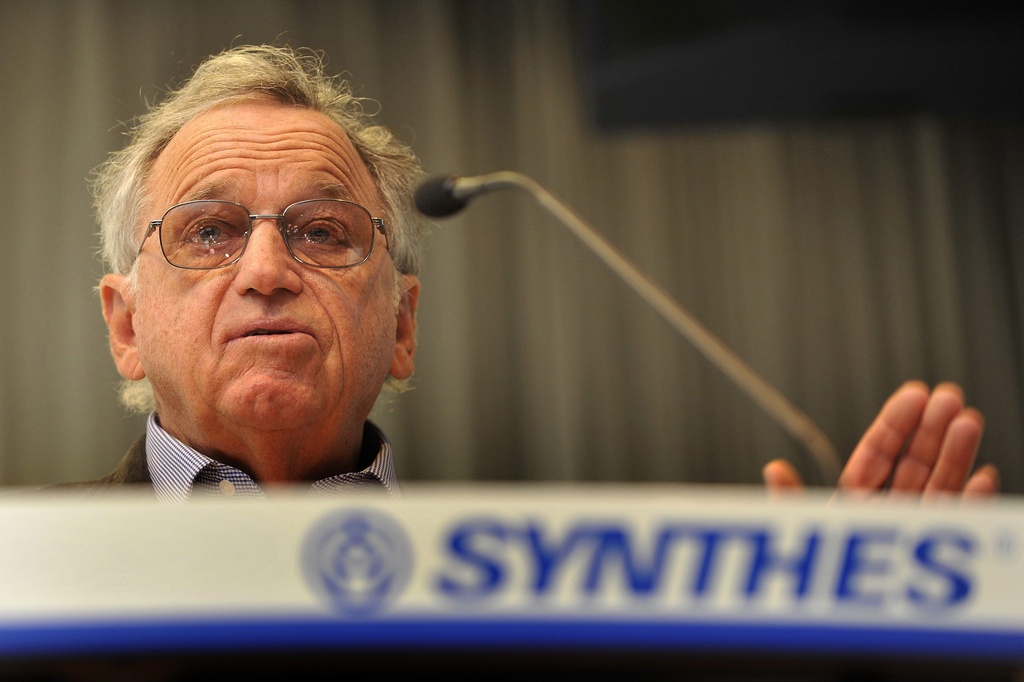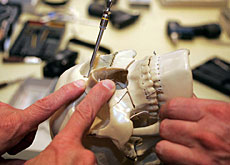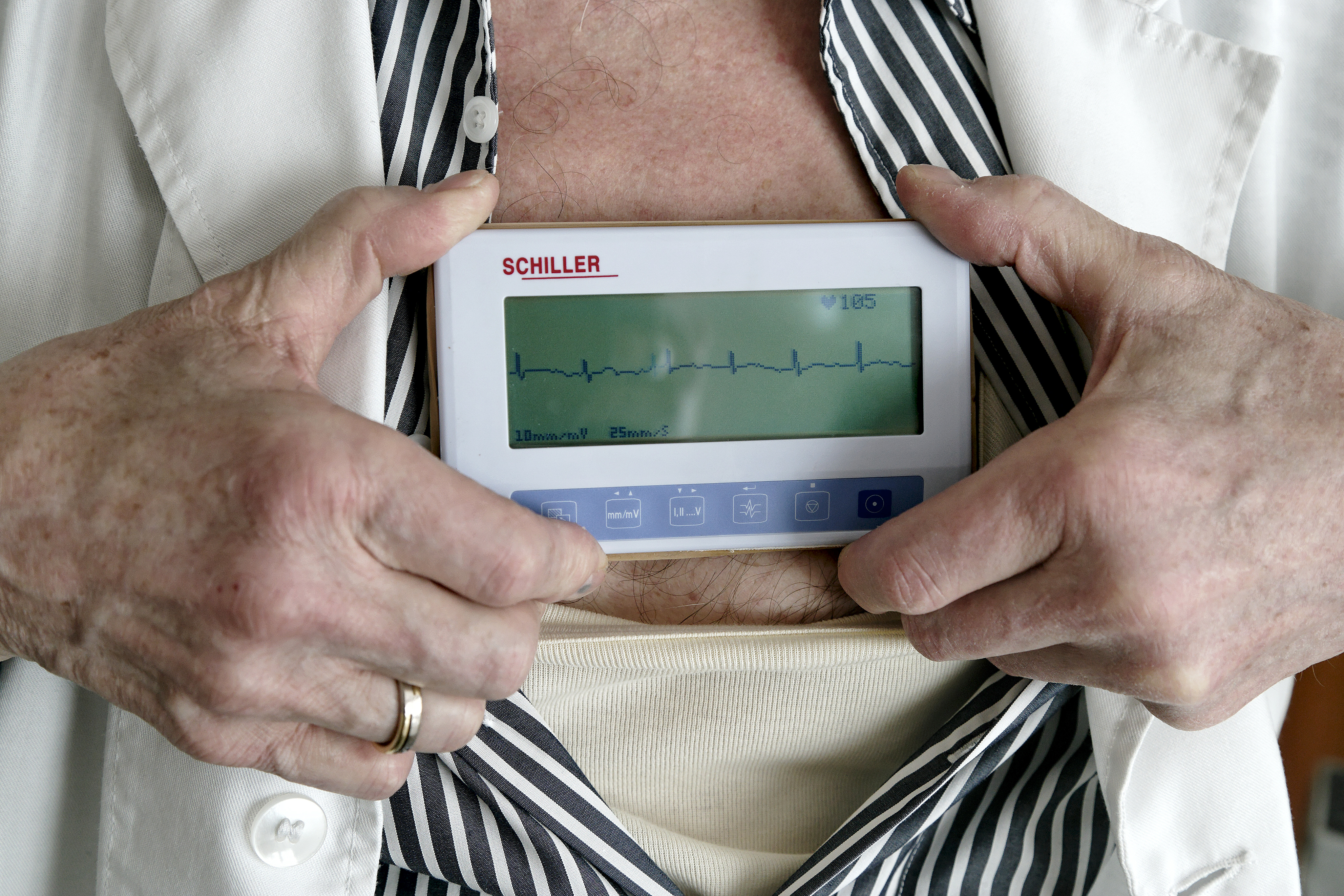Synthes owner looks to pass on majority stake

Medtech firm Synthes has admitted it is courting a takeover deal from a pharmaceutical giant with majority shareholder Hansjörg Wyss prepared to hand over the reins.
Synthes confirmed this week that it was touting itself to United States company Johnson & Johnson as a possible takeover target, with Swiss media speculating that it is also in talks with other potential buyers.
Such a deal, although far from being signed, would benefit Johnson & Johnson far more than Synthes, according to observers. It would also end speculation about the future of Wyss’s 40 per cent personal stake in Synthes.
The 76-year-old Swiss billionaire famously fobbed off questions about his succession plans last year by saying: “When I’m dead, I’m dead.” But with no family member willing to take over his controlling stake, he appears to have had a change of heart by searching for a large buyer.
Johnson & Johnson represents one of the few companies that has the financial clout to buy out Wyss.
Success story
Synthes has carved out a profitable business in the growing market of metal plates, screws, saws and drill bits for orthopaedic surgery. Its products are used around the world to repair bone fractures and deformities.
The firm was originally born out of a cooperation between a Davos-based medical non-profit foundation (Association for the Study of Osteosynthesis – AO) and various companies that were licensed to make products from the research and sell them commercially.
By 2006, the medical-engineering alliance had boiled down to one firm – Synthes – with a strong presence in both Switzerland and the US. It turned in a $908 million (SFr815 million) profit last year – up a quarter from 2009.
Johnson & Johnson would appear to gain more commercially from taking over Synthes by boosting its share of the orthopaedic market to 28 per cent at a time that the heavyweight is looking to diversify its business portfolio.
Advantage Johnson
Synthes already controls half of the market for orthopaedic trauma devices and has no need for a sugar daddy, according to Zurich Cantonal Bank analyst Sibylle Bischofberger.
“Synthes could continue to be successful without a big partner, it would not gain anything from such a deal,” Bischofberger told swissinfo.ch. “The driving force behind the success of Synthes has always been its cooperation with the AO Foundation.”
“With a 51 per cent market share in medical trauma devices, there is not a lot Johnson & Johnson can offer to push Synthes to another level.”
Johnson & Johnson, on the other hand, is looking for a prize to help it out of a difficult past couple of years. The US company was rocked last year by the recall of an artificial hip product and was fined for making improper payments to healthcare employees.
Synthes could prove just the tonic to fizz up Johnson & Johnson’s fortunes after its unsuccessful bid to take over British knee and hip replacement company Smith & Nephew.
Family business
If the deal goes ahead, it would in many respects mirror the sale of Swiss biotech company Serono to German drugmaker Merck in 2006.
The Swiss Bertarelli family sealed the deal by selling its 64.5 per cent controlling stake in Serono, with chief executive Ernesto Bertarelli taking away a large windfall to spend on his Alinghi yacht racing project.
Switzerland has a strong tradition of family-owned companies, not least in the medical technology sector.
The Hoffmann-La Roche family only recently saw its stake in pharmaceutical giant Roche fall below 50 per cent. Andy Rihs owns about nine per cent of hearing aid manufacturer Sonova with his family controlling another quarter of shares.
Hansjörg Wyss has been described as an old-school style of owner, never taking more than $1 million in pay during his time at the helm of Synthes.
He now spends most of his time in the US and has diverted millions of dollars of his fortune to philanthropic causes. They include a $25 million gift to the Harvard Business School, support for environmental causes as well as for the Beyeler Foundation, which holds a vast art collection.
Synthes has come a long way from its original roots with the present day company being formed from a merger of different enterprises in Switzerland and the US.
In 1958, Swiss surgeons formed the Association for the Study of Internal Fixation (AO/ASIF) to advance the science of orthopaedic surgery. AO/ASIF teamed up with engineering firm Mathys Medizinaltechnik.
AO/ASIF registered the trademark Synthes two years later, awarding commercial contracts to Mathys and medtech firm Straumann to develop, produce and distribute innovations.
Hansjörg Wyss founded Synthes USA in 1974 while AO/ASIF turned into the AO Foundation in 1984 – the Association for the Study of Osteosynthesis.
Straumann left the alliance by spinning off its orthopaedic interests, which became known as Stratec Medical in 1990. Stratec listed on the Swiss stock exchange in 1996.
Stratec and Synthes USA combined forces in 1999 to form Synthes-Stratec. The merger was completed in 2004 to form the publically listed company Synthes.
Two years later Synthes bought out the intellectual property rights from the commercial arm of the AO Foundation.

In compliance with the JTI standards
More: SWI swissinfo.ch certified by the Journalism Trust Initiative














You can find an overview of ongoing debates with our journalists here . Please join us!
If you want to start a conversation about a topic raised in this article or want to report factual errors, email us at english@swissinfo.ch.